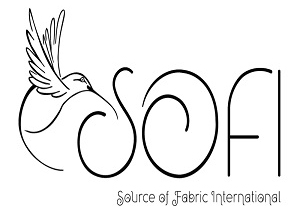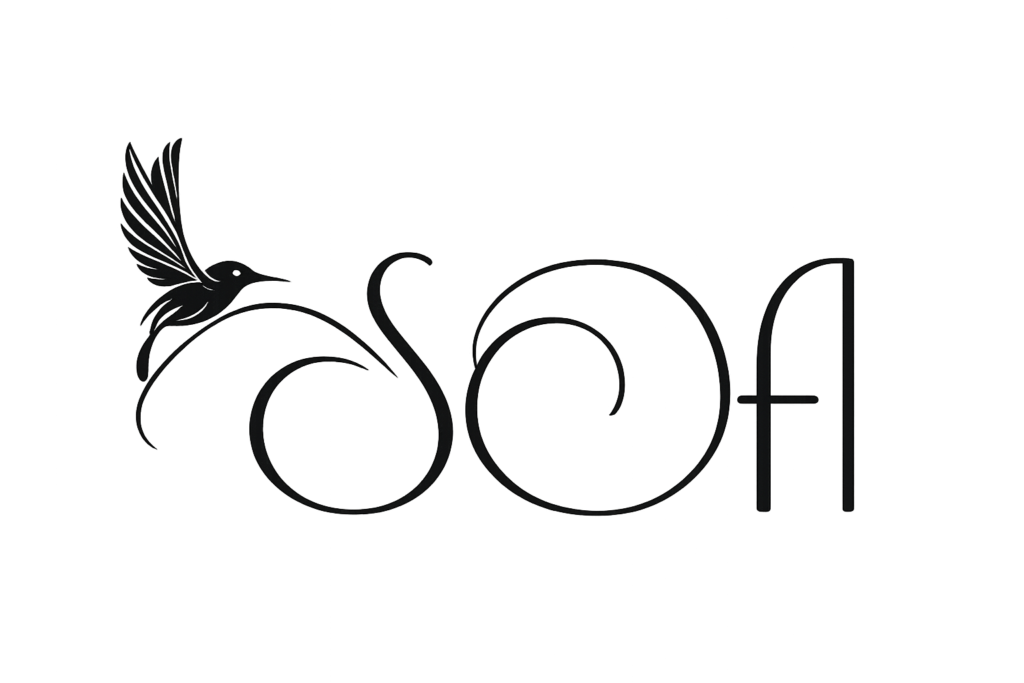Nylon fabric has become a staple in various industries, thanks to its durability, versatility, and lightweight properties. From fashion to outdoor gear, its applications are vast and ever-growing. For businesses looking to source quality nylon at competitive prices, wholesale options present an attractive solution.
By purchasing nylon fabric in bulk, companies can significantly reduce costs while ensuring they have the materials needed to meet demand. This article explores the benefits of buying fabric wholesale, the different types available, and tips for selecting the right supplier. Whether you’re a designer, manufacturer, or retailer, understanding the wholesale market can give you a competitive edge in today’s fast-paced environment.
Overview of Nylon Fabric
Nylon fabric is a synthetic material made from polyamide fibers. Known for its strength and durability, nylon resists wear and tear, making it suitable for various applications such as clothing, upholstery, and industrial goods.
Nylon’s lightweight nature contributes to its popularity. It allows for comfortable wearing in activewear and outdoor gear. Additionally, nylon exhibits great elasticity, helping garments retain their shape.
Different types of nylon exist, including nylon 6, nylon 6,6, and nylon 12. Each type has specific characteristics, suited for distinct uses. For example, nylon 6,6 possesses higher heat resistance, while nylon 12 offers lower moisture absorption.
Purchasing nylon in bulk provides cost advantages for businesses. Buying wholesale lowers the price per yard, improving profit margins. It also ensures a steady supply of materials for production, which benefits manufacturers and retailers aiming to meet customer demands.
Understanding the properties and types of nylon fabric allows designers and businesses to make informed decisions about their material choices.
Benefits of Nylon Fabric
Nylon fabric offers numerous advantages that make it a popular choice across various industries. Its distinctive properties contribute to its widespread use, especially in wholesale purchases.
Durability and Strength
Nylon fabric is highly durable and resistant to wear and tear. It has a tensile strength that surpasses many other fabrics. This strength ensures that nylon materials can withstand heavy use, making them ideal for applications like outdoor gear and upholstery. Nylon’s resistance to abrasion means it holds up well in harsh environments, ensuring longevity. For businesses, opting for wholesale fabric online leads to lower replacement costs over time, as the fabric maintains its integrity longer than alternatives.
Water Resistance
Nylon fabric exhibits excellent water resistance, which makes it suitable for various applications, including outdoor clothing and accessories. This property helps prevent moisture from penetrating the fabric, keeping users dry in wet conditions. Coating nylon with substances like silicone enhances its water-repellent qualities. Businesses benefit from providing products made from nylon that withstand rain and exposure to moisture, ensuring customer satisfaction and durability. This feature makes nylon a preferred choice for manufacturers aiming to create functional and resilient goods.
Applications of Nylon Fabric
Nylon fabric finds applications in various industries due to its unique properties. Its durability, lightweight nature, and resistance to wear make it an excellent choice for multiple uses.
Fashion and Apparel
Nylon is commonly used in fashion and apparel. From activewear to swimwear, the fabric provides stretch and comfort. Many brands prefer nylon for its ability to wick moisture away from the skin, enhancing the wearer’s experience. Additionally, nylon offers a smooth texture and drapes well, making it suitable for dresses, linings, and outerwear. The fabric is often blended with other materials to improve performance and create fashionable looks. Nylon’s color retention and ease of care further boost its popularity in the fashion market.
Industrial Uses
Nylon fabric plays a crucial role in industrial applications. Its strength and durability make it ideal for products like ropes, conveyor belts, and protective gear. In automotive and aerospace industries, nylon is used for components that require resilience and heat resistance. The fabric’s ability to withstand harsh conditions enhances performance in machinery and equipment. Additionally, nylon’s chemical resistance is beneficial in areas such as packaging and construction, where it protects against wear and abrasion. Businesses often rely on wholesale nylon to ensure adequate supply for their industrial needs.
Sourcing Nylon Fabric Wholesale
Sourcing nylon fabric wholesale involves identifying trustworthy suppliers and assessing the quality of the materials. This process is crucial for businesses to ensure they receive reliable products that meet their needs.
Finding Reliable Suppliers
Finding reliable wholesale suppliers is essential for successful wholesale operations. Start by researching various suppliers in the textile industry. Utilize online directories and trade platforms to identify potential vendors. Read reviews and customer feedback to gauge supplier reliability. Attend trade shows and industry events to network with suppliers and gather firsthand information about their offerings. Establish direct communication with suppliers to discuss pricing, minimum order quantities, and delivery times. Verify certifications and compliance with industry standards to ensure product quality. Reach out to industry peers for recommendations on trusted suppliers in nylon fabric.
Evaluating Quality
Evaluating quality is vital when sourcing nylon fabric. Analyze the specifications of the nylon types offered, such as denier strength and fiber composition. Request samples to assess the fabric’s texture, weight, and color retention. Check for certifications that indicate compliance with safety and quality standards. Examine the fabric’s resistance to wear and tear, water, and UV rays, depending on your intended application. While reviewing samples, be aware of stitching and finishing to ensure durability. Compare the quality of different suppliers’ offerings to make informed decisions that meet business needs and customer expectations.
Pricing Considerations
Pricing for nylon fabric wholesale varies based on several factors. Initial considerations include the type of nylon fabric, the order quantity, and specific supplier pricing structures.
Type of Nylon Fabric
Different types of nylon exhibit unique cost structures. Common types include:
- Nylon 6: Generally cheaper, suitable for a variety of applications.
- Nylon 6,6: Priced higher due to enhanced durability and heat resistance.
- Nylon 12: Often more expensive due to lower moisture absorption characteristics.
Order Quantity
Larger orders typically result in lower per-unit pricing. Suppliers often provide discounts for bulk purchases, encouraging businesses to order greater quantities to maximize savings.
Supplier Pricing Structures
Each supplier employs distinct pricing strategies. Some might have fixed-rate pricing, while others might offer negotiation opportunities. It’s essential to assess options such as:
- Negotiation potential: Always inquire about possible discounts for bulk orders or long-term partnerships.
- Additional costs: Consider shipping, handling, and any potential import duties that could influence the final price.
Market Trends
Market trends can significantly impact pricing. Factors such as demand, availability, and raw material costs affect the overall price of nylon fabric. Staying informed on these trends enables better forecasting and budgeting for fabric purchases.
Understanding these pricing considerations aids in making informed decisions when sourcing nylon fabric wholesale.
Conclusion
Nylon fabric wholesale offers a strategic advantage for businesses looking to optimize costs while ensuring quality and supply. By understanding the diverse types of nylon and their specific applications, companies can make informed decisions that align with their needs. The durability and versatility of nylon make it an essential material across various industries.
Sourcing nylon from reliable suppliers not only enhances product quality but also opens opportunities for better pricing and negotiation. Whether businesses are looking for wholesale fabric online, wholesale linen fabric, bolts of fabric wholesale, or wholesale cotton fabric, staying updated on market trends and pricing structures will empower them to navigate the wholesale landscape effectively. Ultimately, embracing nylon fabric wholesale can lead to significant benefits in both product performance and customer satisfaction.
Frequently Asked Questions
What is nylon fabric and why is it important?
Nylon fabric is a synthetic material known for its durability, lightweight nature, and versatility. It’s significant across various industries, including fashion, outdoor gear, and aerospace, due to its strength and water resistance, making it ideal for heavy-use applications.
What are the different types of nylon?
The main types of nylon include nylon 6, nylon 6,6, and nylon 12. Nylon 6 is generally the most affordable, while nylon 6,6 offers higher heat resistance and nylon 12 has lower moisture absorption, making each type suitable for distinct applications like activewear and industrial uses.
How does purchasing nylon in bulk benefit businesses?
Buying nylon fabric in bulk allows businesses to reduce costs while ensuring a consistent supply. Larger orders often lead to lower per-unit prices, which can significantly improve profit margins and enable companies to keep up with customer demand.
What are the advantages of nylon fabric?
Nylon fabric is exceptionally durable and strong, resistant to wear and tear, making it ideal for products like outdoor gear and upholstery. Its water resistance and moisture-wicking properties enhance its suitability for clothing, ensuring longevity and customer satisfaction.
How can businesses find reliable nylon suppliers?
Businesses can find reliable nylon suppliers by researching online directories, attending industry events, and communicating directly with potential suppliers. It’s essential to discuss pricing, delivery, and assess the quality of materials before making a purchase.
What factors influence nylon fabric pricing?
Nylon fabric pricing varies based on the type of nylon, order quantity, and supplier pricing strategies. Nylon 6 tends to be the cheapest, while nylon 6,6 and nylon 12 are usually more expensive due to their enhanced features. Market trends also impact pricing.
Why is understanding nylon properties important for designers?
Understanding the properties of different nylon types allows designers to make informed choices about materials. This knowledge helps ensure the selected fabric meets the specific requirements of their projects, leading to better performance and customer satisfaction in the final products.


